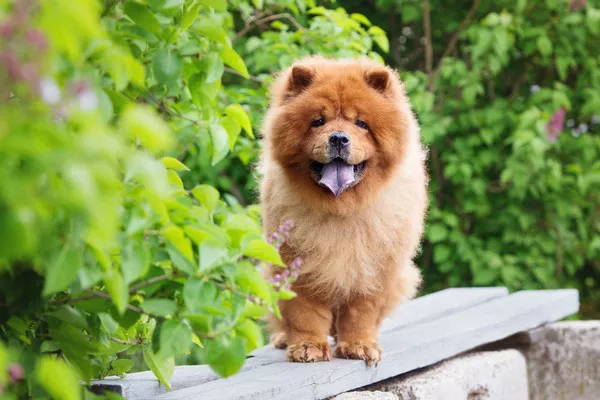Bringing a Chow Chow puppy into your home is an exciting experience, but it also comes with the responsibility of providing proper nutrition. Chow Chows are known for their unique dietary needs, and ensuring that your puppy receives the right nutrients is essential for their growth and overall health. In this comprehensive guide, we will walk you through the steps to feed your Chow Chow puppy, helping them thrive in their formative months.
1. Understanding the Unique Nutritional Needs of Chow Chow Puppies
To provide the best care for your Chow Chow puppy, it’s crucial to understand their unique nutritional requirements:
Growth Phases: Chow Chow puppies go through rapid growth phases during their first year. They require a diet that supports bone and muscle development.
Sensitivity: Chow Chows can have sensitive stomachs, making it important to choose easily digestible foods.
Joint Health: These dogs are prone to joint issues, so their diet should include nutrients that promote joint health.
2. Selecting the Right Puppy Food
Choosing the right puppy food for your Chow Chow is a crucial decision. Look for the following qualities in puppy food:
High-Quality Ingredients: Opt for puppy food that lists real meat (such as chicken, beef, or lamb) as the primary ingredient. Avoid foods with excessive fillers and artificial additives.
Age-Appropriate: Ensure that the food is formulated specifically for puppies. Chow Chow puppies have different nutritional needs than adult dogs.
Large Breed Formula: Since Chow Chows are considered a large breed, consider a large breed puppy formula to support their unique growth requirements.
3. Feeding Schedule for Chow Chow Puppies
Establishing a regular feeding schedule is vital for your Chow Chow puppy’s development:
Frequency: Feed your puppy three to four times a day until they are around six months old. Gradually transition to two meals per day as they get older.
Consistency: Try to feed your puppy at the same times each day to create a routine.
Portion Control: Follow the feeding guidelines provided on the puppy food packaging. Adjust portions based on your puppy’s age, weight, and activity level.
4. Monitoring Your Puppy’s Weight
Proper weight management is essential for your Chow Chow puppy’s health:
Regular Weigh-Ins: Weigh your puppy regularly to monitor their growth. Your veterinarian can provide guidance on a healthy weight range for your specific puppy.
Avoid Overfeeding: Chow Chows are prone to obesity, so be cautious about overfeeding. Stick to recommended portion sizes.
5. Transitioning to Adult Food
As your Chow Chow puppy matures, you’ll need to transition them to adult dog food:
Timing: Begin the transition when your puppy is around 12 to 18 months old. Consult your veterinarian for the best timing based on your puppy’s growth.
Gradual Change: Transition by mixing a small amount of adult food with their puppy food, gradually increasing the proportion of adult food over several days.
Large Breed Adult Food: Consider transitioning to a large breed adult dog food to support your Chow Chow’s joint health.
6. The Importance of Fresh Water
Always provide fresh, clean water for your Chow Chow puppy:
Hydration: Puppies need plenty of water to stay hydrated, especially if they are on dry kibble.
Monitor Water Intake: Pay attention to your puppy’s water consumption. Increased thirst or decreased water intake can be signs of health issues that require attention.
7. Treats and Training
Treats can be a valuable tool for training and rewarding your Chow Chow puppy:
Use in Moderation: Use treats in moderation to avoid overfeeding. Opt for small, low-calorie treats.
Training Treats: Choose treats specifically designed for training sessions to reinforce positive behavior.
8. Avoiding Harmful Foods
Certain foods are toxic to dogs and should be avoided at all costs:
Chocolate: Contains substances toxic to dogs, especially dark chocolate.
Grapes and Raisins: Can cause kidney failure in dogs.
Onions and Garlic: Can lead to severe health issues, including anemia.
Xylitol: A sugar substitute often found in sugar-free gum and candy, which is toxic to dogs.
9. Regular Vet Check-Ups
Regular visits to the veterinarian are essential for monitoring your Chow Chow puppy’s health and nutritional needs:
Consultation: Discuss your puppy’s diet and any concerns with your veterinarian. They can provide guidance on nutrition, weight management, and overall health.
Vaccinations: Ensure your puppy receives all necessary vaccinations on schedule.
10. Adjusting Diet for Specific Needs
Chow Chows may have specific dietary needs or allergies:
Food Allergies: If your puppy displays signs of food allergies, such as itching, digestive issues, or ear infections, consult your veterinarian for guidance on hypoallergenic diets.
Special Diets: In some cases, your veterinarian may recommend a special diet tailored to your Chow Chow’s specific health needs.
Conclusion
Feeding your Chow Chow puppy a nutritious and balanced diet is essential for their growth, health, and well-being. By understanding their unique nutritional requirements, selecting the right puppy food, establishing a feeding schedule, and monitoring their weight, you can provide the best start in life for your beloved Chow Chow. Always consult with your veterinarian for personalized dietary recommendations and guidance on your puppy’s growth and development.


